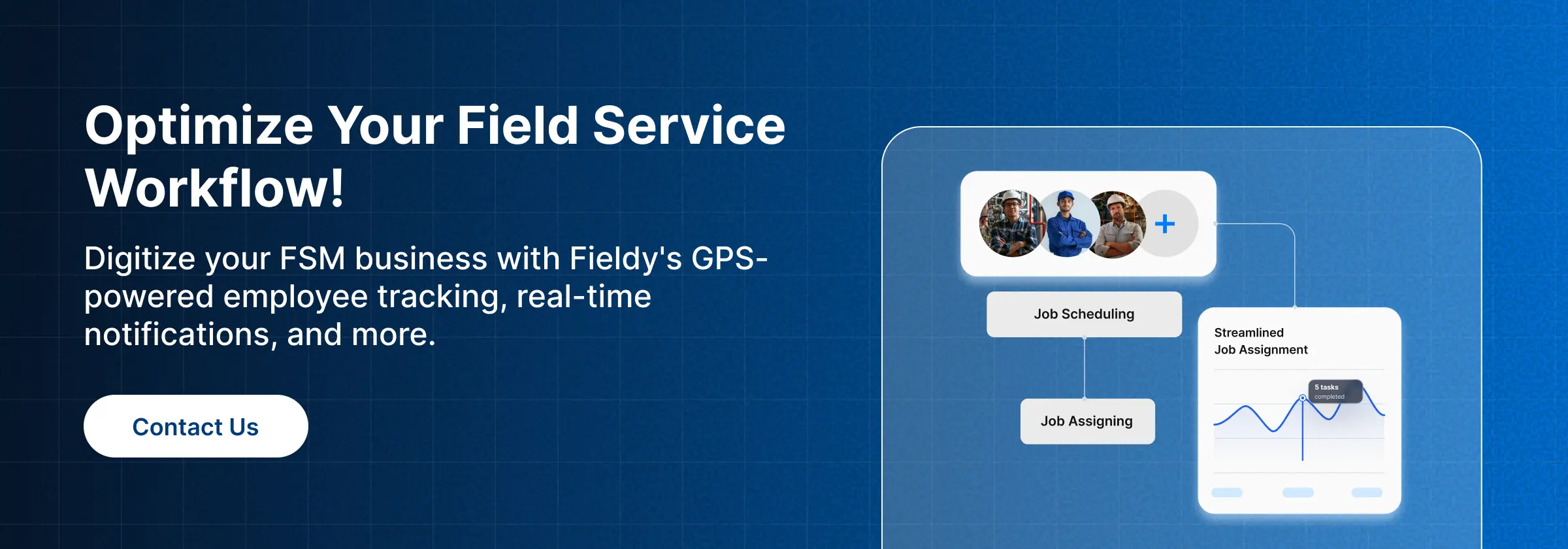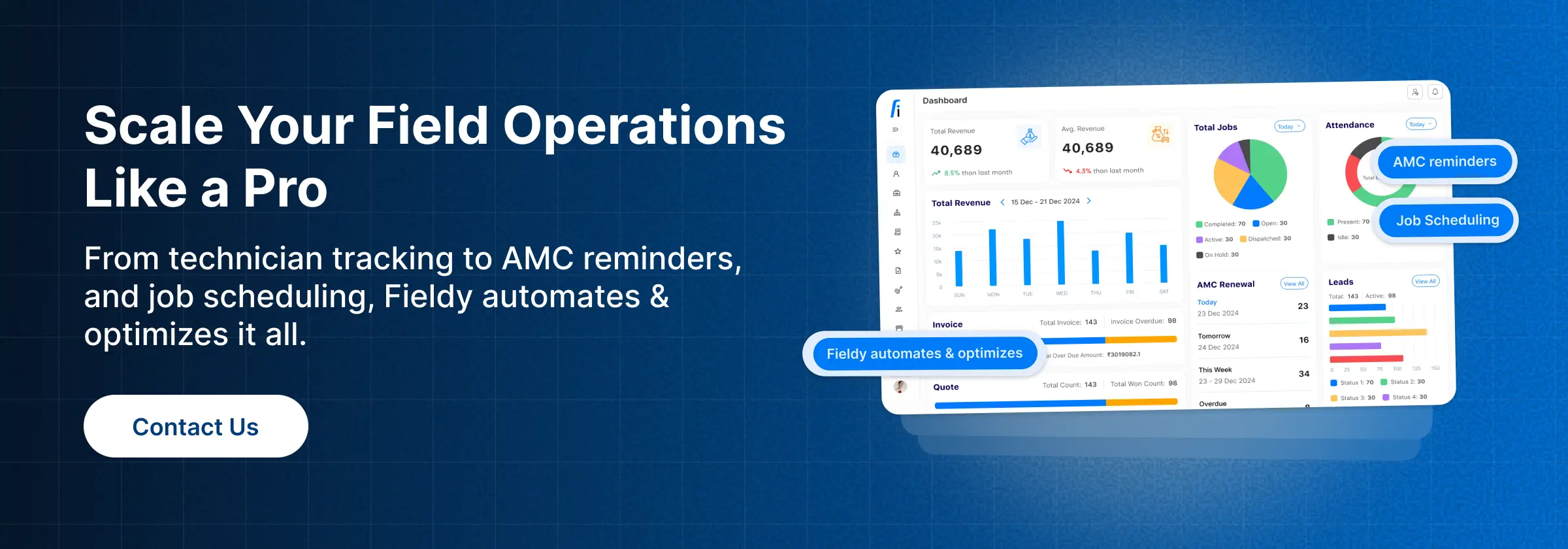Field service engineers are the unsung heroes behind the smooth running of businesses that depend on sophisticated machines and on-site service delivery. In the days of lost revenue due to downtime, these professionals keep the environment healthy for functioning equipment and high client satisfaction. From fixing hospital-grade imaging machines to maintaining telecommunication towers or industrial automation systems, these engineers are a blend of technical know-how and solution-oriented skills.
This comprehensive guide walks you through who they are, what they do, where they work, and why their position will continue to grow in importance into 2026 and beyond. We will also look at how their profession is affected by modern tools, changing industries, and global trends.
Why Field Service Engineers Matter in 2026
Industrial sectors have always been interrelated and in some way or the other, digitized. The fourth industrial revolution, caused by the IoT, AI, robotics, and edge computing, now renders field service engineering as a highly vital operation. These professionals are no longer seen merely as technical repair workers but as partners in operational strategy.
Today, field engineers are very much into uptime management, compliance, and digital transformation. Input from them can cut downtime by up to 30%, thus raising customer retention and operational efficiency, so companies with competent field service teams have reported from 20 to 25% improvement in first-time fix rates, plus a reduction in customer complaints.
With higher-than-ever customer expectations and added pressure on SLA (Service Level Agreement), the field service engineers maintain that high-value assets work at optimum levels. The global Field Service Management (FSM) market alone is expected to gross over $10 billion by 2028, presumably because of the need for advanced field service skills.
A successful field service engineer nowadays repairs, anticipates, advises, and enables. Systems being more integrated and software-driven means the field engineers have become strategic advisors in client environments.
What Is a Field Service Engineer?
A field service engineer is a technically trained individual responsible for the installation, maintenance, and troubleshooting of complex equipment and systems on the client’s premises. On-field engineers are hands-on technicians who provide remedies to technical problems on the spot, differentiating them from in-house engineers or remote help desk technicians.
They must combine mechanical, electronic, and IT knowledge to identify and resolve issues ranging from hardware failures to software glitches. They can work alone in the field and make decisions concerning a technical issue at their own discretion, explaining the problem to consumers, and therefore constitute an essential element of the post-sale service experience.
Field service engineers may find work in various service sectors:
- Medical services: Medical imaging devices are installed and maintained by field engineers in a hospital environment. These may consist of MRIs, CTs, and digital X-rays.
- Telecommunications: Installation of network infrastructure catering to mobile networks and fiber networks
- Industrial automation: Robots and PLCs, and control systems are fine-calibrated and maintained by field engineers.
- Energy and utilities: Field engineers monitor renewable energy equipment, smart meters, and grid automation tools
- Smart cities: The traffic systems and smart grid networks that are IoT-connected are maintained
Engineering and service teams are connected through field technicians; therefore, they have a primary role in ensuring that the technical infrastructure remains efficient, secure, and updated.
What Do Field Service Engineers Do?
Core Responsibilities
Field service engineers perform a whole range of functions that change according to industry and specialization. However, the usual duties include:
- Installation: Personal setting up of new equipment at customers’ premises
- Calibration and Testing: Testing devices so that they fulfill operational requirements
- Diagnosis: Using tools and equipment of a specialized nature to track faults
- Maintenance: Performing some maintenance work on an ad hoc basis to prevent failure
- Upgrades: Applying firmware or hardware upgrades on-site
- Documentation: Making records about jobs done, test results, and recommendations for future service
- Customer Training: Training customers to safely and optimally use equipment
- Safety Audits: Carrying out safety audits to ensure that installations conform to regulatory and environmental standards
They may be called in to liaise with internal departments like R&D or customer support to resolve chronic issues or develop more workable long-term remedies.
Tools & Technologies They Use
The tasks demand a lot from field engineers, who have to pull out everything from a well-equipped toolkit:
- Diagnostic Tools: Engineers use diagnostic tools like multimeters, oscilloscopes, and spectrum analyzers to detect faults and ensure efficient on-site repairs.
- Software Platforms: Robust Field Service Management Software with job scheduling, real-time reporting, and automated notifications
- Mobile Devices & Field Apps: Tablets or rugged laptops running field apps loaded with service manuals, work order templates, and customer records
- IoT Devices & Dashboards: For real-time monitoring, engineers rely on IoT devices that send status alerts and operational data
- Remote Support: In-the-field collaboration with experts using AR, video calling, or live troubleshooting
- CRM Integration: Enables technicians to access past service history and customer communication logs on the go
Modern field service management software platforms allow engineers to record work orders, manage parts inventory, update job statuses, and collect customer feedback, all while on-site. Tracking Field Service KPIs and Metrics like first-time fix rate, mean time to repair, and technician utilisation helps companies improve efficiency and service quality. Increasingly, predictive analytics are being used to alert engineers of potential system failures before they happen.
How Are Field Engineers Different from Field Technicians?
Engineer vs Technician – Key Differences
Although these jobs may overlap, field service engineers generally carry out more advanced work than field service technicians, that is to say:
Task Complexity: Engineers perform enhanced system integration and root-cause analysis, whilst technicians follow predefined steps.
Educational Background: Engineers usually obtain an engineering degree or electronics certification, or one in mechanical systems or computer science. Technicians surrounded by vocational training or hold an associate degree.
Problem-Solving Scope: Engineers normally have to cope with unforeseen issues, occasionally needing to improvise on the spot.
System Understanding: Engineers have to understand the system from a holistic perspective, aka how the software interacts with hardware.
Decision-Making Authority: Engineers are often left to make decisions on the spot that can have a great impact.
For example, the technician replaces a faulty part in a machine while the engineer researches why the failure happened, records the incident, and applies the corrective action to ensure it never happens again.
Skills Required to Be a Successful Field Service Engineer
Hard Skills and Technical Skills
A field service engineer must have:
- Understanding of electrical, electromechanical, or mechatronic systems
- Ability to interpret circuit diagrams and technical schematics
- Expertise in using test and diagnostic equipment
- Some knowledge of computer systems, databases, and firmware
- Setup, configuration, and network security skills
- Knowledge of cybersecurity for connected systems
Soft Skills
- Communication: Explaining technical issues to non-technical stakeholders
- Customer Service: Managing expectations and building trust on-site
- Adaptability: Adjusting to different environments and problem scenarios
- Time Management: Completing tasks within SLA commitments
- Analytical Thinking: Quickly diagnosing complex technical problems and crafting long-term solutions
Certifications & Learning
Certifications attest to an ability of the engineer and often open doors to specialized roles:
- CompTIA A+/Network+ for basic IT skills
- CCNA (Cisco Certified Network Associate) for networking roles
- AWS Certified Solutions Architect for cloud-integrated systems
- Certified Field Service Technician (CFST) for industry-validated’
Also, learning is life, because the technology landscape changes rapidly. Now, most companies have this in place as a benefit or are requiring it: technical upskilling once per year.
Where Do Field Service Engineers Work?
Industries
Field service engineers are found in:
- Healthcare: Calibrating surgical robots, imaging devices, and dialysis machines
- Telecommunications: Installing fiber lines, small cell networks, and signal boosters
- Energy: Servicing solar inverters, turbines, and battery systems
- Oil & Gas: Inspecting pressure monitoring systems and drilling equipment
- Aerospace & Defense: Supporting radar systems, communication modules, and flight hardware
- Consumer Electronics: Assisting in setup and maintenance of high-end home automation systems
Work Environments
These engineers work in diverse and sometimes challenging environments:
- On construction sites, industrial plants, remote locations, or even offshore rigs
- Often alone or in small teams, with the need for high self-sufficiency
- Sometimes, in hazardous or high-security zones, strict safety compliance is required
- With extensive travel and field exposure, they often operate under variable weather and resource constraints
Their flexibility and willingness to travel are among the most sought-after qualities. Many engineers spend 50% or more of their time on the road.
Tools That Help Field Engineers Excel
Field Service Management Application
Field service management applications like Fieldy, ServiceMax, or Zoho FSM helps field engineers:
- Receive and manage job assignments
- Plan optimized travel routes
- Sync parts inventory with field activity
- Upload photos, notes, and customer signatures
- Analyze recurring issues via reporting dashboards
- Log time spent on each job, generating productivity insights
Advanced Technologies
New tools are reshaping the role:
- Augmented Reality (AR): Enables remote experts to visually guide field engineers
- Artificial Intelligence (AI): Smart job allocation, failure prediction, and chatbot assistance
- Predictive Maintenance Tools: Real-time data from IoT devices allows proactive intervention
- Digital Twins: Engineers simulate real-world scenarios for faster issue resolution
- Wearables: Smart helmets and glasses help improve safety and performance in hazardous zones
These technologies are not only boosting productivity but also reducing error rates and first-time fix ratios. According to a study by Aberdeen Group, businesses that use FSM tools see a 20% increase in service revenue and a 17% rise in customer satisfaction scores.
Top Challenges Field Engineers Face On the Job
Few skilled in the field of engineering face a few challenges:
- Resources: Lack of parts availability, updates in the manual from the site.
- Environment-Fixability gets lower under conditions of bad weather, absence of light, or restricted spaces.
- Client’s Expectations, quality, and customer satisfaction.
- Technological Fatigue: Change in Software, update in protocols, compliance standards.
- Safety Issues: Risk of exposure to electrical components, hazardous chemicals, or working at heights.
Time-Pressure-Working under deadlines while maintaining standards of compliance.
Supportive companies that strongly support their engineers with training content ready for mobiles, FSM tools, and digital documentation lessen stress and improve retention.
Final Thoughts
“Future of Field Service Engineers”
As industries automate, digitize, and monitor processes from a distance, their demands on the field service engineers broaden substantially. These engineers are no longer able to deal only in break-fix activities. They are now active problem solvers, technical advisors, and users of digital tools.
Winner organizations will be those that enable their field service divisions with the right training, tools, and technology. The direct effect on uptime, customer satisfaction, and operational ROI comes from investing in FSM platforms, upskilling programs, and real-time support solutions.
Field service engineering is more than just a career path, it is the foundation of modern service delivery. If your organization’s high-performance field operations are geared towards service, the time is ripe for investment in this rewarding career.
Eager to empower your field engineers? Take a look at how Fieldy’s full FSM offering can change the face of your field operations today.
FAQs:
What qualifications are needed to become a field service engineer?
A: A field service engineer needs a degree in engineering, electronics, or IT, plus certifications like CompTIA A+ or CCNA, and strong diagnostic skills.
Which industries hire field service engineers?
A: Field service engineers work in healthcare, telecom, energy, automation, aerospace, and smart cities, wherever complex systems need on-site service.
How is the field service engineer role evolving in 2025?
A: In 2025, a field service engineer uses FSM tools, IoT data, and remote support to prevent failures and improve uptime and customer satisfaction.


![What Is a Field Service Engineer? What Do Field Service Engineers Do? [2026 Updated]](https://blog-admin.getfieldy.com/wp-content/uploads/2025/08/What-Is-A-Field-Service-Engineer.webp)

